Gary Wilson, one of the Læra Institute's Academic Co-Directors, has recently published an article exploring the ideas of sustainability and inclusiveness in the 'knowledge ecosystem' of the Canadian North, with implications for the ways in which we teach and learn about this part of the Circumpolar world. Entitled 'Developing a sustainable and inclusive knowledge ecosystem in the Canadian North', Prof Wilson's article appeared in a special issue of the journal Sustainability devoted to the theme of 'Shaping tomorrow's Arctic'. Sustainability is an open-access journal, and the article is free to read. An abstract follows.
A knowledge ecosystem is a collection of individuals and organizations who are involved in the creation, management and dissemination of knowledge, both in the form of research and lived experience and teaching. As is the case with ecosystems more generally, they thrive on variation and diversity, not only in the types of individuals and organizations involved but also in the roles that they play. For many decades, the northern knowledge ecosystem in Canada was dominated and controlled by Western scholarly approaches and researchers based in academic institutions outside the North. More recently, this research landscape has started to change, largely in response to the efforts of Indigenous peoples and northerners to realize greater self-determination and self-government. Not only have these changes led to the development of research and educational capacity in the North, but they have also changed the way that academic researchers engage in the research process. The keys to maintaining the future sustainability and health of the northern knowledge ecosystem will be encouraging diversity and balance in the research methodologies and approaches used to generate knowledge about the North and ensuring that the needs and priorities of northern and Indigenous peoples are recognized and addressed in the research process.

